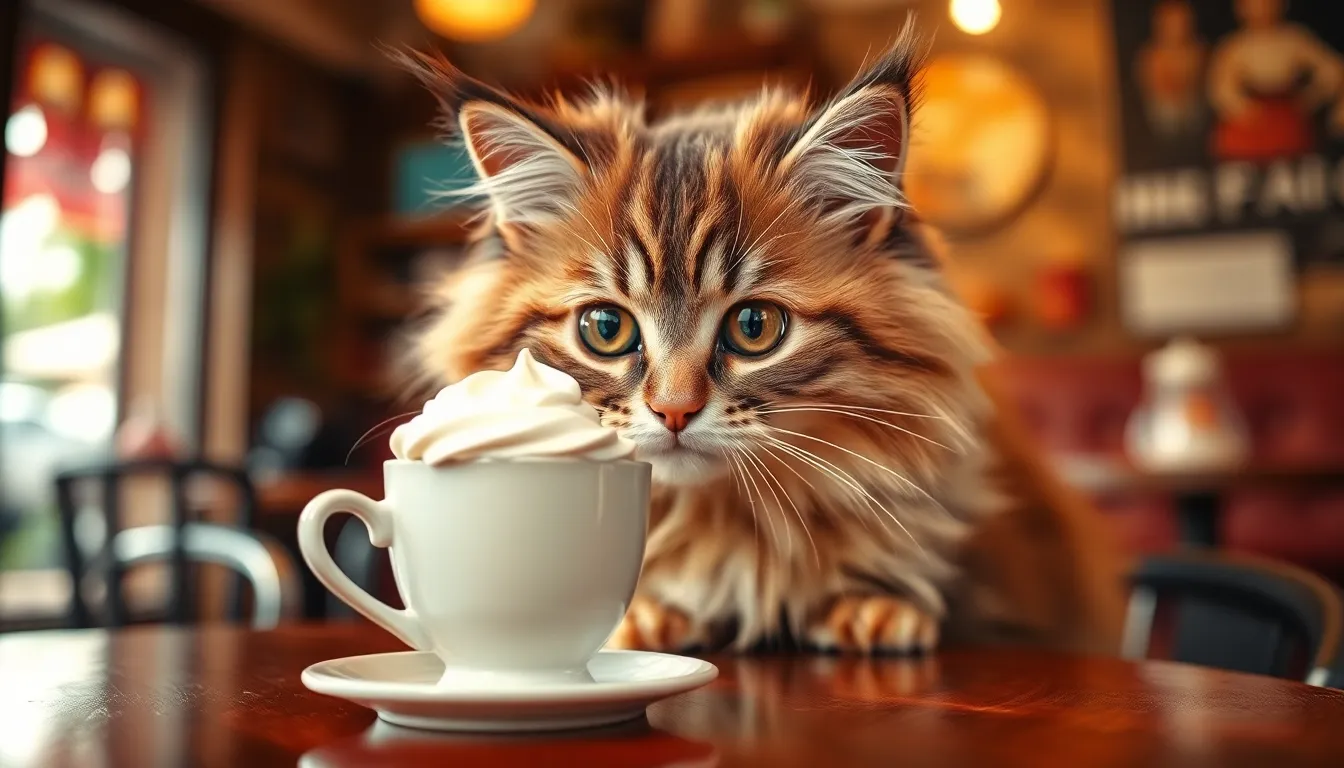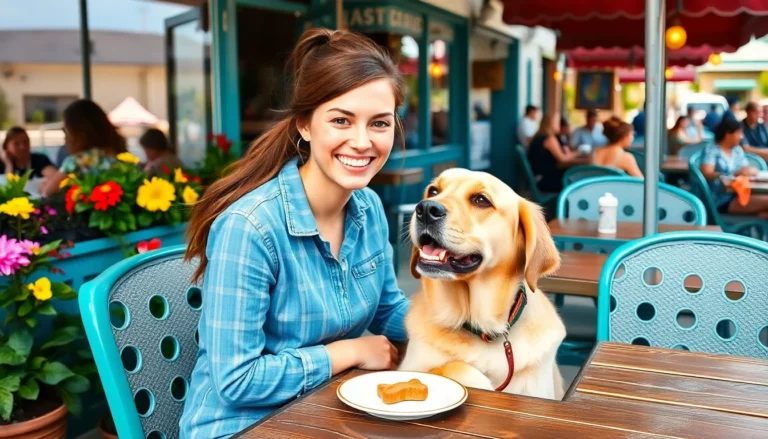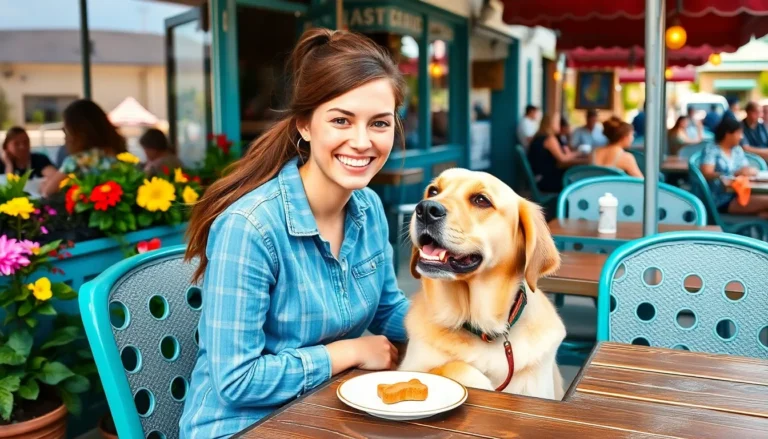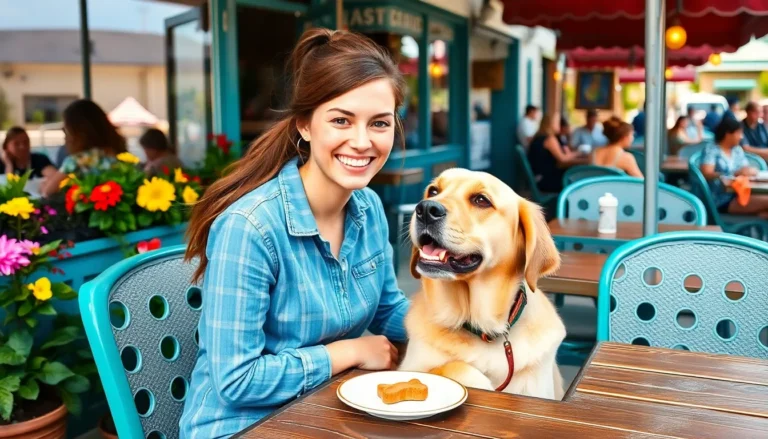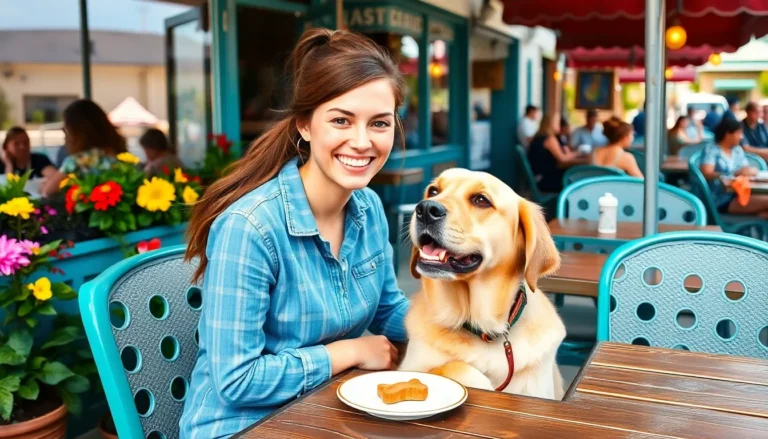Table of Contents
TogglePicture this: you’re at your favorite coffee shop, sipping on a delicious iced treat, when you spot a furry feline eyeing a pup cup. It’s a tempting scene, but can cats really indulge in this canine delight? The answer might surprise you.
Understanding Pup Cups
Pup cups have gained popularity as a dog-friendly treat. Many pet owners wonder if these are safe for cats too.
Definition of Pup Cups
Pup cups refer to small, often whipped cream-filled cups offered at cafes as a special treat for dogs. They typically come in a variety of sizes, allowing for easy sharing among pets. Some establishments offer them for free or as part of a promotional event, emphasizing the pet-friendly environment of the café. Not intended for cats, these treats nonetheless pique the curiosity of feline companions.
Ingredients Typically Found in Pup Cups
Pup cups generally contain dog-safe ingredients such as whipped cream, peanut butter, and sometimes yogurt. Whipped cream serves as a popular base, appealing to dogs’ taste preferences. Peanut butter, when unsweetened and free of xylitol, adds flavor and protein benefits. Yogurt also appears as an alternative, providing probiotics for digestive health. Despite their appealing ingredients, these treats aren’t designed for cats, given their different dietary needs.
Can Cats Have Pup Cups?
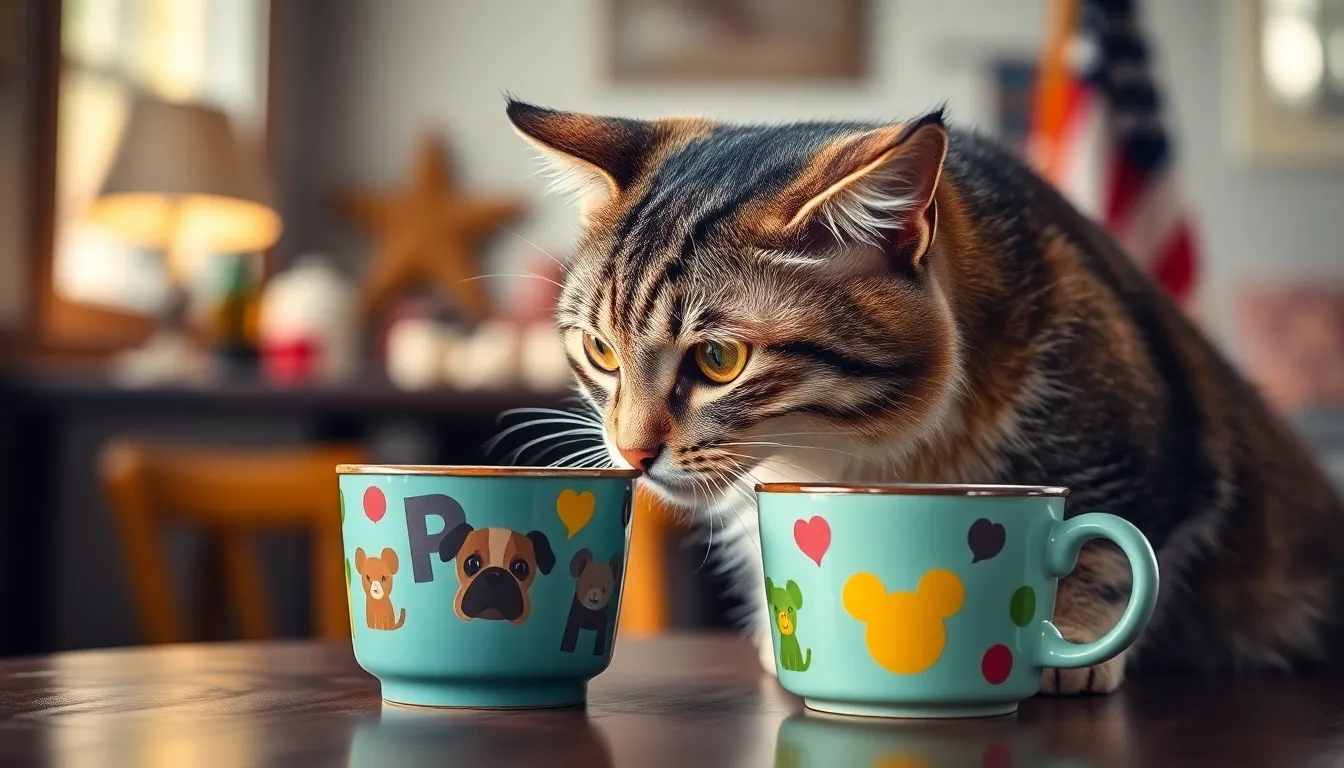
Cats may be curious about pup cups, but these treats aren’t designed for them. Understanding the implications for feline health and nutrition is important.
Safety Considerations
Pup cups can pose risks for cats due to their ingredients. Whipped cream often contains lactose, which many cats can’t digest properly. Peanut butter may contain additives like xylitol, toxic to felines. Additionally, some cats could show allergic reactions to ingredients commonly found in pup cups. Always consult a veterinarian before offering your cat any human food to ensure their safety.
Nutritional Needs of Cats
Cats require a diet high in protein with specific nutrients crucial for their health. Unlike dogs, felines don’t derive benefits from the carbohydrates in whipped cream or the sugar content typically present. Essential nutrients like taurine, found in meat, are vital for heart and eye health. While pup cups may tempt them, they don’t address the nutritional needs of cats and lack the necessary ingredients for a balanced feline diet.
Potential Risks for Cats
Pup cups may seem tempting, but they carry potential risks for feline companions. Common ingredients in these treats can trigger allergic reactions or sensitivities in some cats.
Allergies and Sensitivities
Allergic reactions can occur from ingredients like dairy or certain flavorings. Cats may experience symptoms such as itching, swelling, or gastrointestinal upset. Lactose intolerance is particularly common among cats, as many lack the enzyme required to digest lactose efficiently. These reactions can lead to discomfort and health complications. It’s crucial for cat owners to monitor their pets closely after introducing new foods, even those that seem harmless like pup cups. Consulting a veterinarian for any known food allergies is advisable before experimenting with questionable treats.
Impact on Digestive Health
Digestive health can suffer when cats consume inappropriate foods. Whipped cream and other dairy products can lead to diarrhea and vomiting in lactose-intolerant cats. Additionally, the high sugar and fat content in pup cups can upset a cat’s stomach. Regular consumption of human foods may disrupt a cat’s normal dietary balance, leading to obesity or other long-term health problems. Maintaining a proper diet tailored to a cat’s specific needs is essential for their overall well-being. Always prioritize the nutritional requirements of cats to avoid potential health issues linked to unsuitable treats.
Alternatives to Pup Cups for Cats
Cats can’t enjoy pup cups, but several alternatives exist. These options cater to feline dietary needs while satisfying their curiosity for special treats.
Cat-Friendly Treat Options
Cat-friendly treats include freeze-dried meat and commercial cat treats made with high-quality protein sources. Look for options featuring ingredients like chicken or fish, which appeal to most cats. Some brands create treats specifically designed for cats using safe, wholesome ingredients. Consider soft treats; they often contain added vitamins for extra health benefits. Always check labels to ensure they are free from harmful additives providing peace of mind for cat owners.
Homemade Treat Recipes
Homemade treats offer a personalized way to treat cats safely. One simple recipe involves mixing canned tuna with a bit of pumpkin puree, forming small bite-sized shapes and baking them until firm. Another option uses cooked chicken blended with cat-safe broth, shaped into small pieces. These homemade recipes provide delicious rewards while maintaining nutritional balance. Always remember to monitor portion sizes; treats should not exceed 10% of a cat’s daily caloric intake.
While pup cups may catch a cat’s attention they aren’t a safe or suitable treat for felines. The ingredients commonly found in these dog treats can lead to digestive issues and potential health risks for cats. Instead of offering pup cups, cat owners should focus on providing treats that align with their pets’ dietary needs.
There are plenty of cat-friendly alternatives that are both safe and nutritious. By choosing high-quality protein treats or homemade options, cat owners can satisfy their pets’ curiosity without compromising their health. Always consult a veterinarian before introducing new foods to ensure a balanced diet for a happy and healthy cat.


